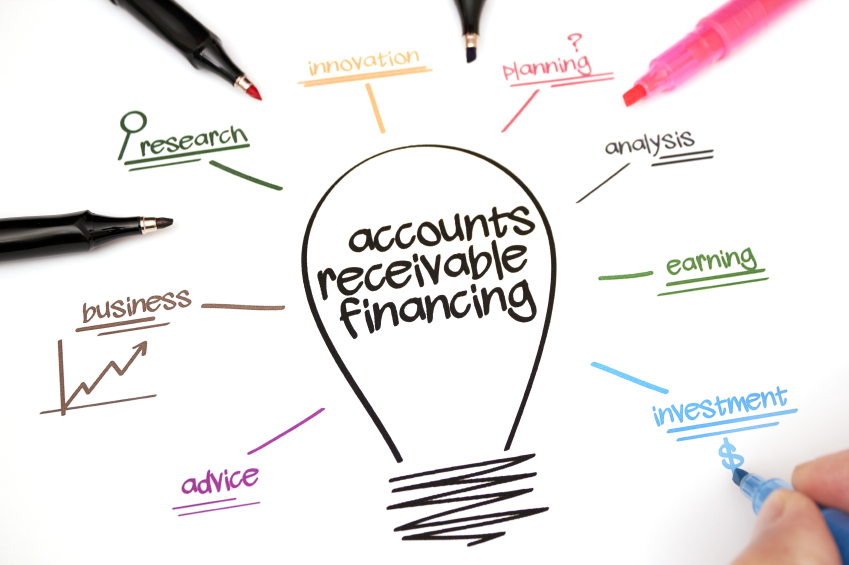Commercial finance factoring allows businesses to obtain immediate capital by selling their accounts receivable or invoices to a third party at a discount. This financial transaction helps companies meet their immediate cash needs and improve their cash flow.
Factoring is a common practice in trade finance, where companies can receive payment based on a percentage of their accounts receivable. It also provides benefits such as export credit, working capital, and insurance for shipping and delivery. Factoring fees may vary depending on the specific terms and conditions of the agreement.
By partnering with a reputable factoring company, businesses can access the capital they need and improve their financial stability and growth potential.
What Is Commercial Factoring?
Commercial factoring is a type of commercial finance that allows businesses to obtain immediate capital based on future income from accounts receivable or business invoices. It involves selling these assets to a third party at a discount to meet present cash needs.
Factoring helps improve cash flow and provides working capital for businesses.
Definition
Commercial factoring is a financial solution that allows businesses to access immediate capital by selling their accounts receivable, also known as business invoices, to a third-party factor at a discount. This transaction provides the business with the necessary funds to meet their present cash needs and fuel their growth. The factor then assumes the responsibility of collecting the payment from the customers.
Benefits
- Immediate Access to Capital: Commercial factoring provides businesses with quick access to funds, allowing them to cover operational expenses, invest in new projects, or seize growth opportunities.
- Cash Flow Improvement: By selling their accounts receivable, businesses can improve their cash flow and ensure a steady stream of income, without having to wait for their customers to pay.
- Minimized Risk: The factor assumes the responsibility of collecting payments from the customers, reducing the risk of bad debts and providing businesses with peace of mind.
- Time-Saving: By outsourcing the collection process to the factor, businesses can save time and resources that would otherwise be spent on chasing payments and handling administrative tasks.
- Flexibility: Commercial factoring is a flexible financing option that grows with the business. The amount of funding provided is directly linked to the value of the accounts receivable, allowing businesses to access more capital as their sales increase.
Example
Let’s say Company A is a growing manufacturing business that supplies goods to various retailers on credit. However, they often face cash flow shortages due to the delay in receiving payments from their customers. To overcome this challenge, Company A decides to use commercial factoring.
They approach a factor and sell their accounts receivable, which amounts to $100,000, at a discount of 5%. The factor provides Company A with $95,000 upfront, allowing them to cover their immediate expenses. The factor then takes over the responsibility of collecting the payments from the retailers.
As the payments start rolling in, the factor deducts their fee and remits the remaining amount to Company A. This not only improves Company A’s cash flow but also eliminates the need for them to spend time and effort on chasing payments.

Credit: www.fortiviti.com
How Does Factoring Work In Trade Finance?
Factoring in trade finance allows companies to receive immediate payment based on a percentage of their accounts receivables. It provides working capital and can be used for insurance on shipping and protecting exporters from nonpayment by the buyer.
Payment Based On Accounts Receivables
Factoring in trade finance works by providing companies with immediate capital or money based on a percentage of their accounts receivables. Accounts receivables refer to the money owed to the company from its customers for sales made on credit. Instead of waiting for these payments to come in, the company can sell their invoices or accounts receivables to a third party known as a factor at a discount. This allows the company to access the funds they need right away instead of waiting for payment.
Export Credit And Working Capital
In addition to providing immediate capital based on accounts receivables, factoring in trade finance also supplies exporters with export credit and working capital. Export credit is financial support provided to exporters to facilitate their international trade. This can help cover expenses such as production costs, shipping fees, and other export-related expenses. Working capital, on the other hand, refers to the funds required for day-to-day operations of a business. By providing exporters with access to export credit and working capital, factoring in trade finance helps to support and grow their international trade activities.
Insurance For Shipping And Nonpayment
Factoring in trade finance also includes insurance options to protect exporters during the shipment and delivery of goods and to safeguard them against nonpayment by the buyer. Shipping insurance can cover any damages or losses that may occur during transportation, ensuring that the exporter does not suffer financial losses. Nonpayment insurance, on the other hand, provides protection in case the buyer fails to make the payment for the goods or services they have received. By offering these insurance options, factoring in trade finance provides exporters with peace of mind and financial security.
How Much Does Financing Factoring Cost?
How Much Does Financing Factoring Cost?
Factoring is a popular financial solution for businesses looking to improve their cash flow by obtaining immediate capital based on accounts receivable. However, like any financial transaction, factoring comes with fees. Understanding these fees is crucial to determine if factoring is the right choice for your business.
When it comes to factoring fees, there are a few key elements to consider:
| Type of Factoring | Fees |
|---|---|
| Recourse Factoring | Lower fees |
| Non-Recourse Factoring | Higher fees |
With recourse factoring, the business retains responsibility for any unpaid invoices. As a result, the factor charges lower fees to compensate for this risk. On the other hand, non-recourse factoring transfers the risk of non-payment to the factor, resulting in higher fees.
Factor fees can also vary based on the creditworthiness of your customers. If your customers have a history of timely payments, factors may charge lower fees. However, if your customers have poor credit or a higher risk of default, factors may charge higher fees to mitigate this risk.
Additionally, factors may charge other fees, such as:
- Application fees: These fees cover the cost of evaluating your business and determining if factoring is a suitable option.
- Due diligence fees: Factors may charge fees to conduct research and verify the accuracy of your invoices and customer creditworthiness.
- Discount fees: This fee is the percentage of the invoice amount that the factor retains as payment for advancing funds to your business.
- Monthly minimum fees: Factors may charge a minimum fee if your invoice volume is below a certain threshold.
It’s important to carefully review these fees and understand how they will impact your business’s profitability. While factoring can provide immediate cash flow, it’s essential to weigh the cost against the benefits.
So, before engaging in factoring, make sure to evaluate your business needs, compare different factors, and negotiate the best terms and fees for your specific situation.

Credit: m.facebook.com
Top Commercial Factoring Companies
When it comes to commercial finance factoring, the top commercial factoring companies play a crucial role in helping businesses obtain immediate capital based on their accounts receivables and invoices. These companies provide valuable financial solutions, allowing businesses to access working capital to meet their present and immediate cash needs. Let’s take a closer look at some of the leading commercial factoring companies.
Universal Funding
Universal Funding is dedicated to supporting emerging businesses with up to $5 million in funding and helping growing businesses with up to $20 million to meet their expansion needs. Additionally, they offer access to working capital to corporations with funding needs of up to $50 million. Their financing solutions are designed to bridge financial gaps, enabling businesses to thrive and grow at any stage.
America’s Factors
With a strong focus on providing instant capital, America’s Factors is committed to supporting businesses by purchasing their accounts receivable and invoices at a discount. This approach helps businesses meet their immediate cash requirements and sustain a healthy cash flow, allowing them to focus on their growth and expansion without being held back by unpaid invoices.
Clarity Factoring
Clarity Factoring provides a reliable financial lifeline to businesses by allowing them to sell their accounts receivable to a third party at a discounted rate. This transaction enables businesses to access immediate funds, ensuring financial stability and flexibility to seize new opportunities and manage day-to-day operations effectively.
Commerce Commercial Credit
Commerce Commercial Credit offers businesses the opportunity to leverage their accounts receivable to secure crucial funding. By selling their invoices at a discounted rate, businesses can receive immediate capital, empowering them to address pressing financial needs and pursue growth opportunities.
Alternative Financing Solutions For Commercial Factoring
When seeking financing options, businesses can explore Alternative Financing Solutions for Commercial Factoring. These solutions enable businesses to receive immediate capital based on their accounts receivable or outstanding invoices, providing them with essential liquidity to meet their operational needs.
Ecapital
eCapital offers flexible and tailored commercial finance factoring solutions to businesses of all sizes. With a focus on providing working capital, eCapital’s factoring programs are designed to support businesses in various industries, helping them manage cash flow effectively. The streamlined application process and competitive advance rates make eCapital an attractive option for businesses seeking financial support.
Commercial Finance Partners
Commercial Finance Partners specializes in providing comprehensive factoring services to businesses across different sectors. Their team works closely with clients to understand their unique financing needs and offers personalized solutions to address them effectively. Through their expertise in commercial finance factoring, they assist businesses in optimizing their cash flow and enhancing their financial stability.
Sallyport Commercial Finance
Sallyport Commercial Finance stands out as a reliable partner for businesses seeking financing solutions through factoring. Their dedicated approach to understanding each client’s needs enables them to offer tailored funding options. With a focus on responsiveness and flexibility, Sallyport Commercial Finance assists businesses in improving their cash flow and ensuring sustainable growth.
By exploring these Alternative Financing Solutions for Commercial Factoring, businesses can navigate the challenges associated with cash flow management and secure the resources needed to drive their success.

Credit: m.youtube.com
Frequently Asked Questions On Commercial Finance Factoring
What Is Commercial Factoring?
Commercial factoring is a financial transaction where a business sells its accounts receivable to a third party at a discount, in return for immediate capital. It allows businesses to access the future income from outstanding invoices without having to wait for customers to pay.
What Is Factoring In Finance?
Factoring in finance is when a business sells its accounts receivable (invoices) to a third party at a discount in exchange for immediate capital. It helps businesses obtain cash quickly and meet their present cash needs. Factoring is a type of debtor finance that allows businesses to access working capital based on future income.
How Much Does Financing Factoring Cost?
The cost of financing factoring varies, typically ranging from 1-5% for every 30 days. Factors like business size and industry can also affect rates.
How Does Factoring Work In Trade Finance?
Factoring in trade finance works by companies selling accounts receivable at a discount for immediate capital. It provides working capital and insurance for exporters while protecting against nonpayment. This transaction allows businesses to access cash based on future income from invoices.
Conclusion
Commercial Finance Factoring provides businesses with immediate access to capital based on their accounts receivable. By selling invoices at a discount to a third party, businesses can meet their cash flow needs and obtain working capital for growth and expansion.
This financial transaction allows companies to improve their cash flow quickly and efficiently. With low monthly minimums, competitive rates, and the ability to help businesses improve their cash flow, Commercial Finance Factoring is an ideal solution for companies seeking alternative financing options.